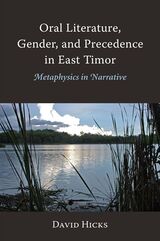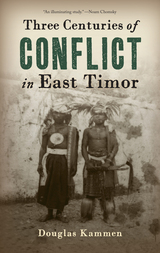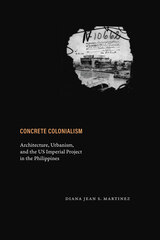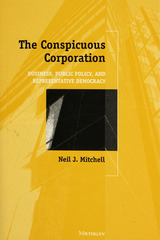2 books about East Timor

Oral Literature, Gender, and Precedence in East Timor
Metaphysics in Narrative
David Hicks
National University of Singapore Press, 2020
Decades of war, social upheaval and political change have not lessened the enduring interest of the people of East Timor (Timor-Leste) in their oral traditions, something they share with their neighbours in the eastern islands of Indonesia. Although oral literature continues to occupy a central place in Timorese cultures, new forms of expression are emerging (for instance via published fiction and in social media). Nonetheless, the corpus of Timorese oral narrative largely retains an underlying metaphysical unity. Among others, it continues to express indigenous notions about gender and precedence – two important sociocultural markers that are among the most prominent topics currently under discussion by scholars of the region today. What has yet to be done, however, is to bring Timorese oral narratives into mainstream social science scholarship by subjecting them to a rigorous scholarly analysis. That is the purpose of this masterly study by the veteran Timor scholar, David Hicks. Drawing upon more than a half century of fieldwork and publishing, he discusses the tropes found in and illuminating Timorese metaphysical thought and literature. No other work has discussed these tropes before nor indeed attempted to discern patterns of thought in Timorese narratives. Certainly, the study will be of interest to scholars of literature, social science, structural analysis, Indonesian cultures and philosophy, as well as to those interested in the country’s colonial past and in efforts to conserve its natural environment. The book should also appeal to educated citizens of Timor-Leste; here is a work illuminating how future aspirations might be grounded in a common heritage.
[more]

Three Centuries of Conflict in East Timor
Kammen, Douglas
Rutgers University Press, 2015
One of the most troubling but least studied features of mass political violence is why violence often recurs in the same place over long periods of time. Douglas Kammen explores this pattern in Three Centuries of Conflict in East Timor, studying that region’s tragic past, focusing on the small district of Maubara.
Once a small but powerful kingdom embedded in long-distance networks of trade, over the course of three centuries the people of Maubara experienced benevolent but precarious Dutch suzerainty, Portuguese colonialism punctuated by multiple uprisings and destructive campaigns of pacification, Japanese military rule, and years of brutal Indonesian occupation. In 1999 Maubara was the site of particularly severe violence before and after the UN-sponsored referendum that finally led to the restoration of East Timor’s independence. Beginning with the mystery of paired murders during East Timor’s failed decolonization in 1975 and the final flurry of state-sponsored violence in 1999, Kammen combines an archival trail and rich oral interviews to reconstruct the history of the leading families of Maubara from 1712 until 2012.
Kammen illuminates how recurrent episodes of mass violence shaped alliances and enmities within Maubara as well as with supra-local actors, and how those legacies have influenced efforts to address human rights violations, post-conflict reconstruction, and the relationship between local experience and the identification with the East Timorese nation. The questions posed in Three Centuries of Conflict in East Timor about recurring violence and local narratives apply to many other places besides East Timor—from the Caucasus to central Africa, and from the Balkans to China—where mass violence keeps recurring.
Download open access ebook here.
Download open access ebook here.
[more]
READERS
Browse our collection.
PUBLISHERS
See BiblioVault's publisher services.
STUDENT SERVICES
Files for college accessibility offices.
UChicago Accessibility Resources
home | accessibility | search | about | contact us
BiblioVault ® 2001 - 2025
The University of Chicago Press









